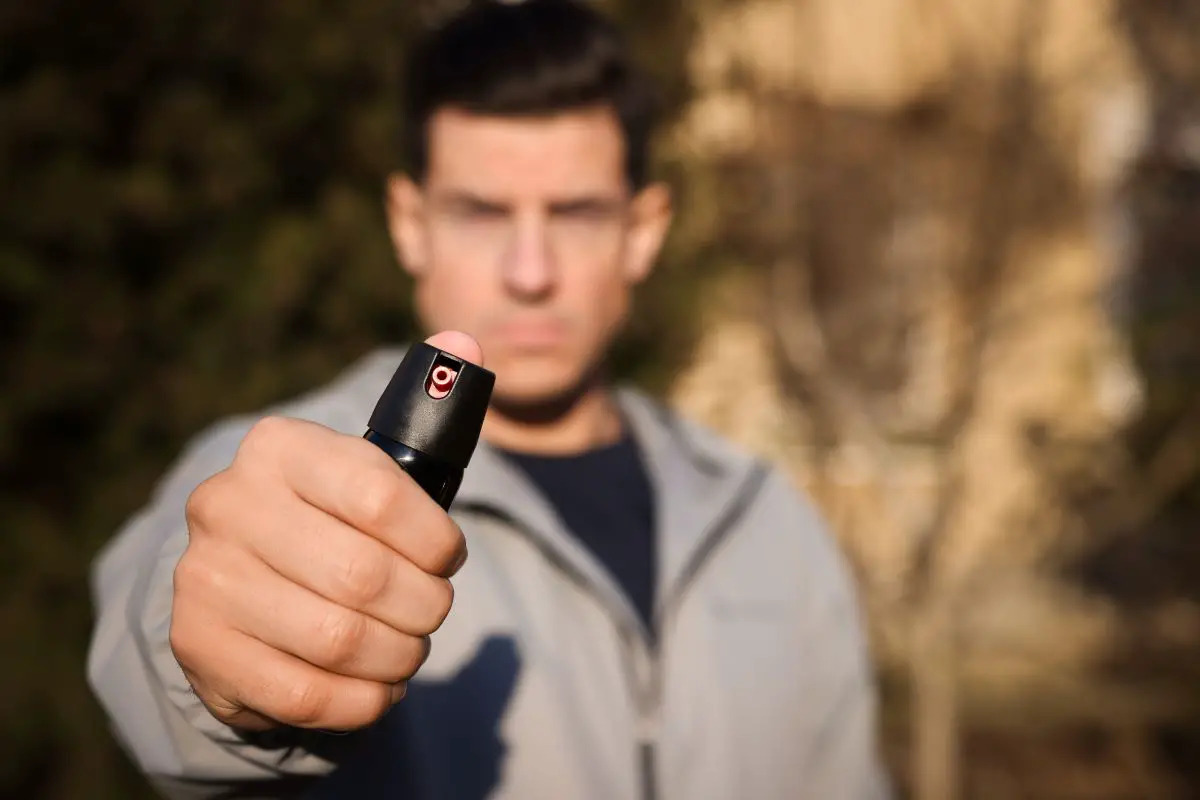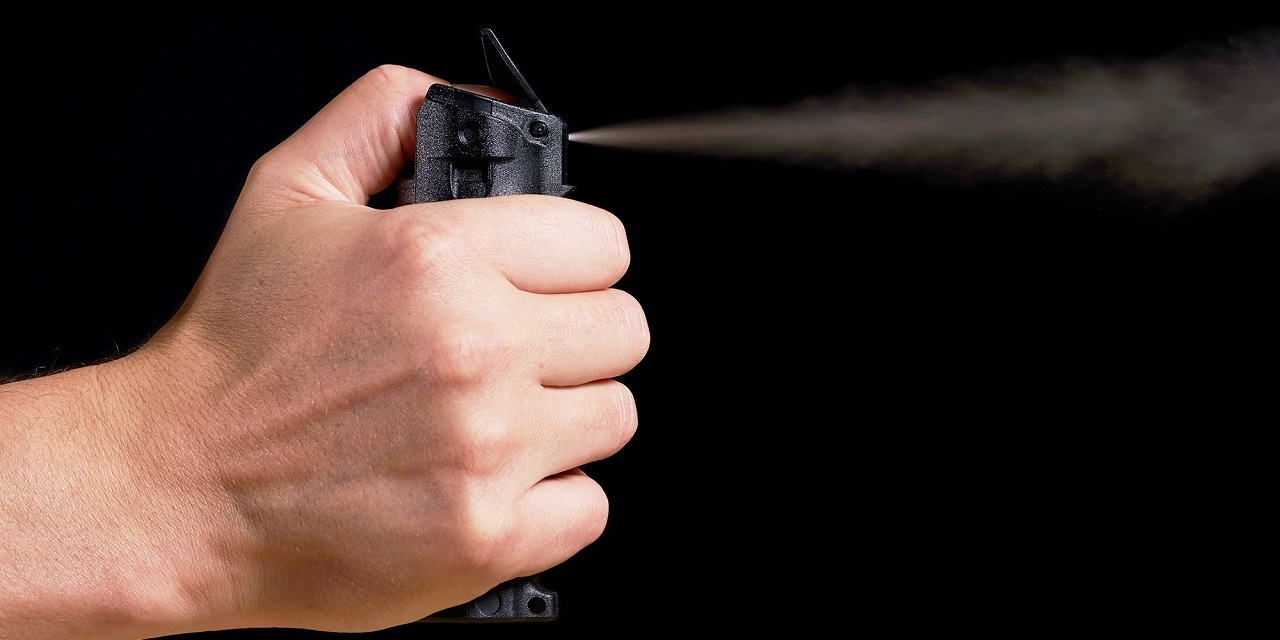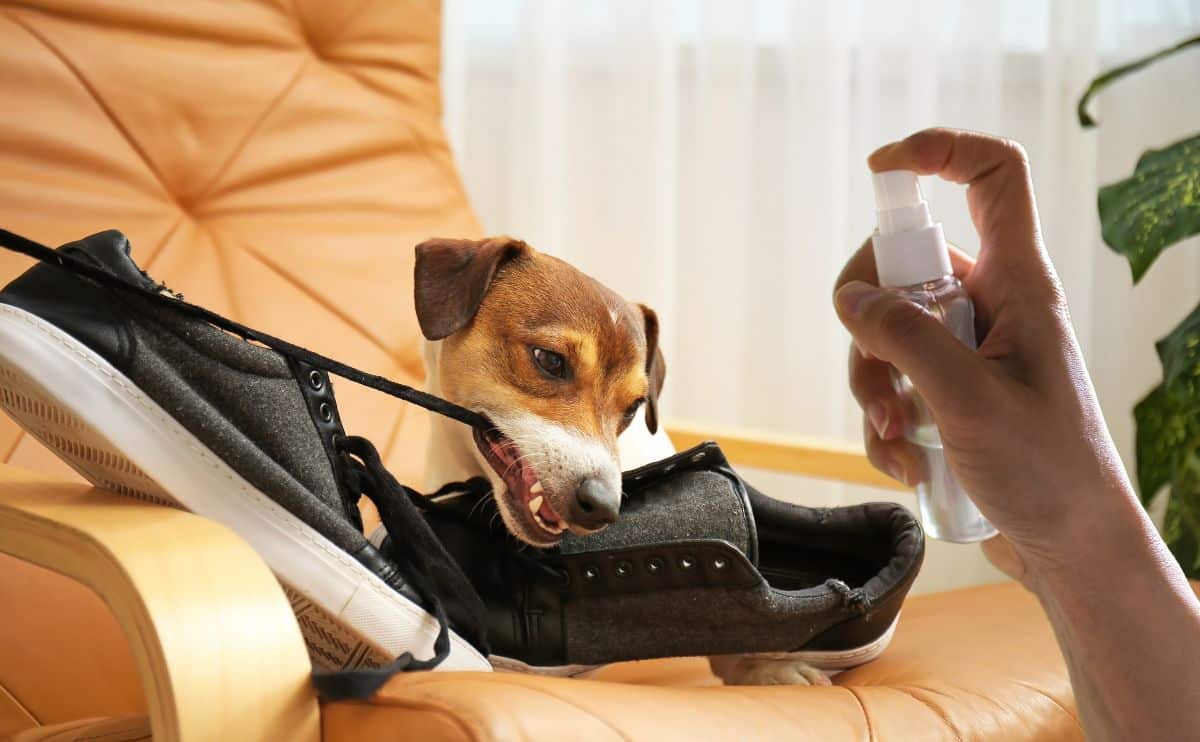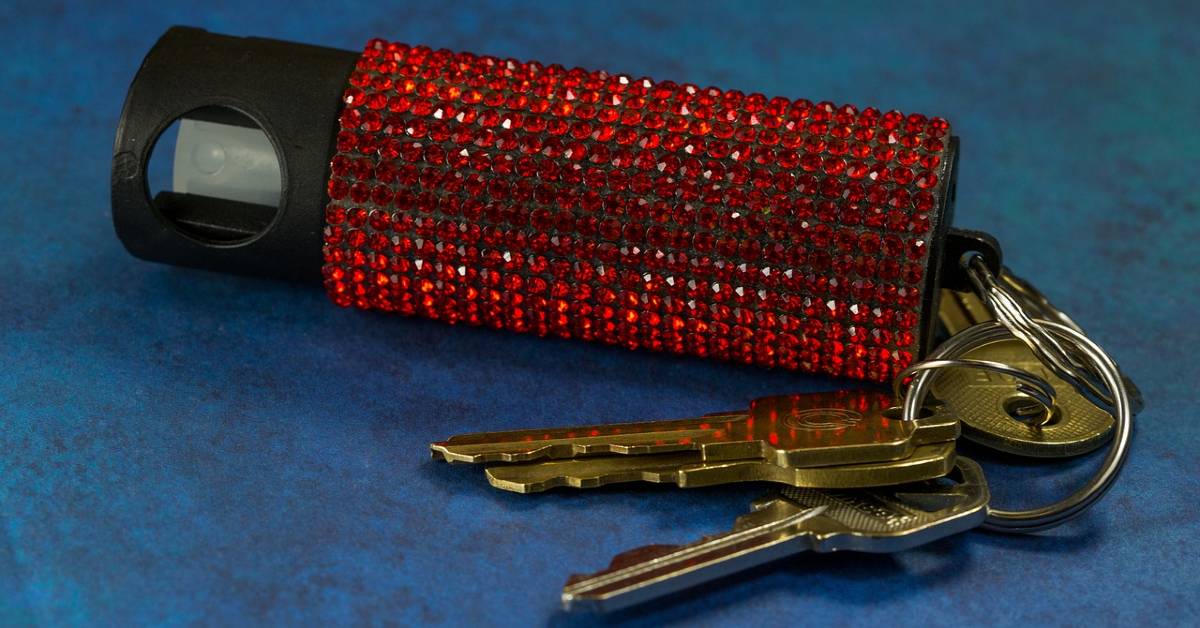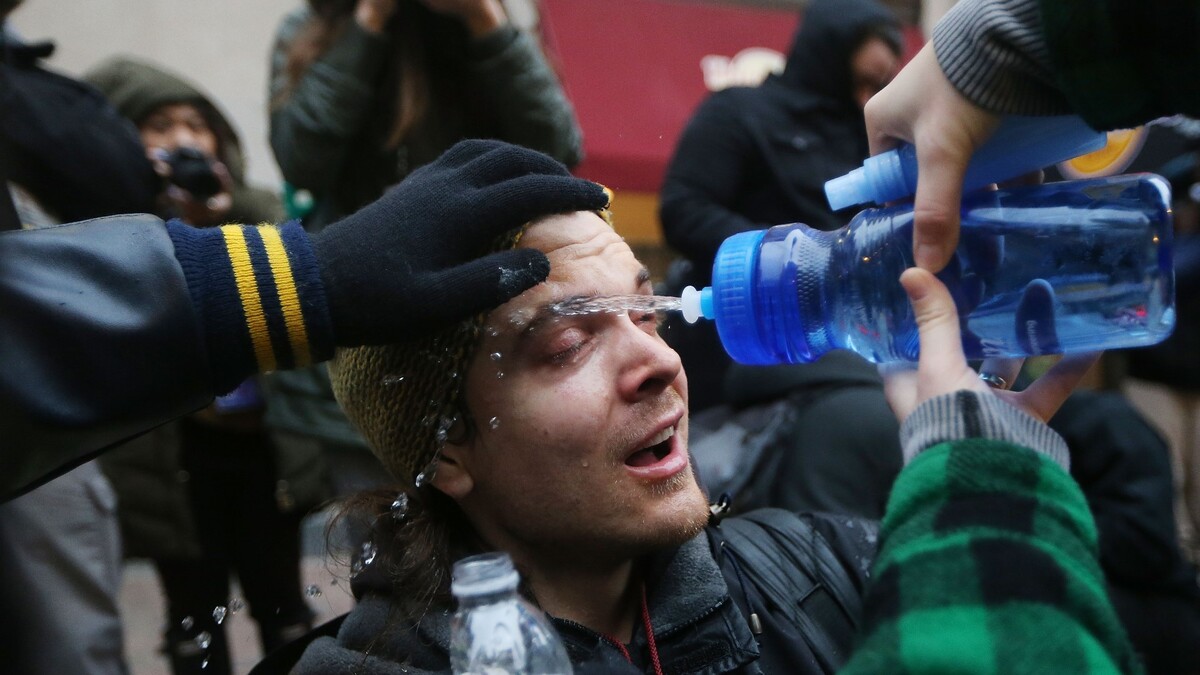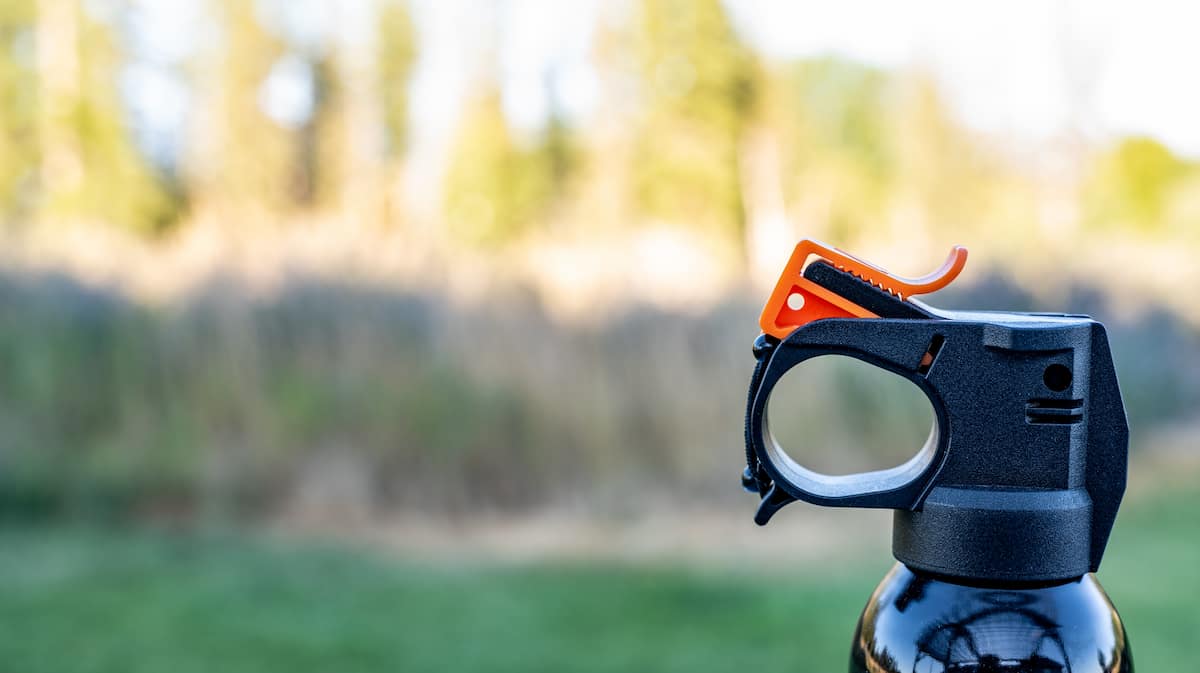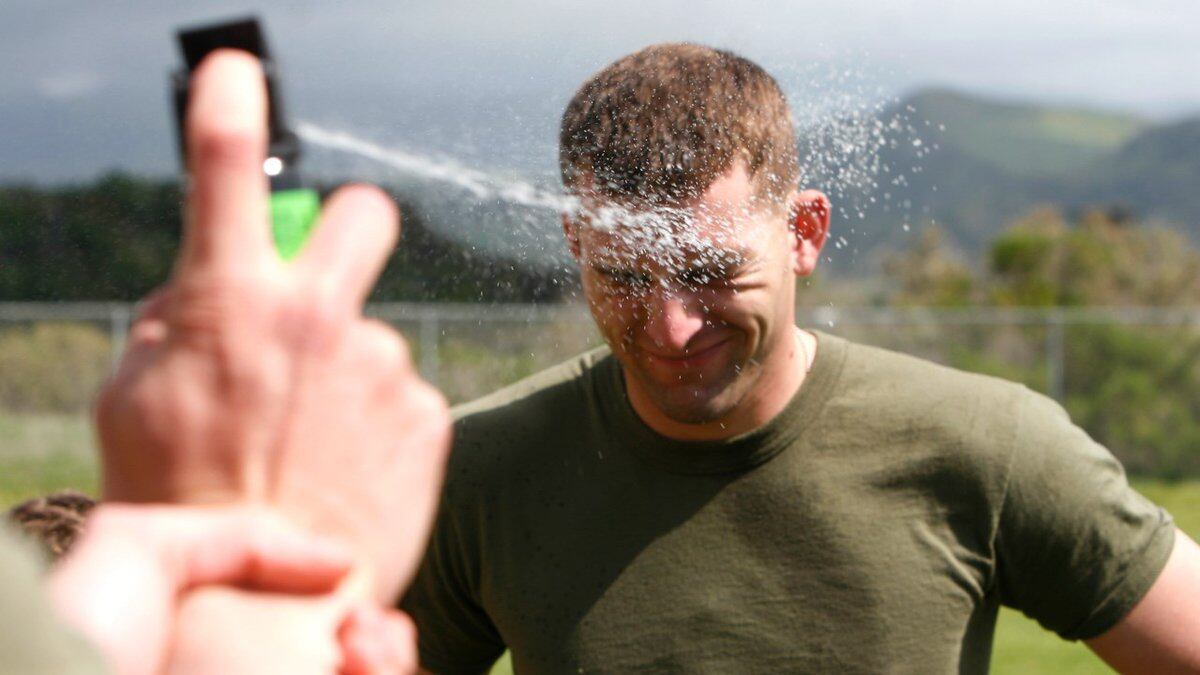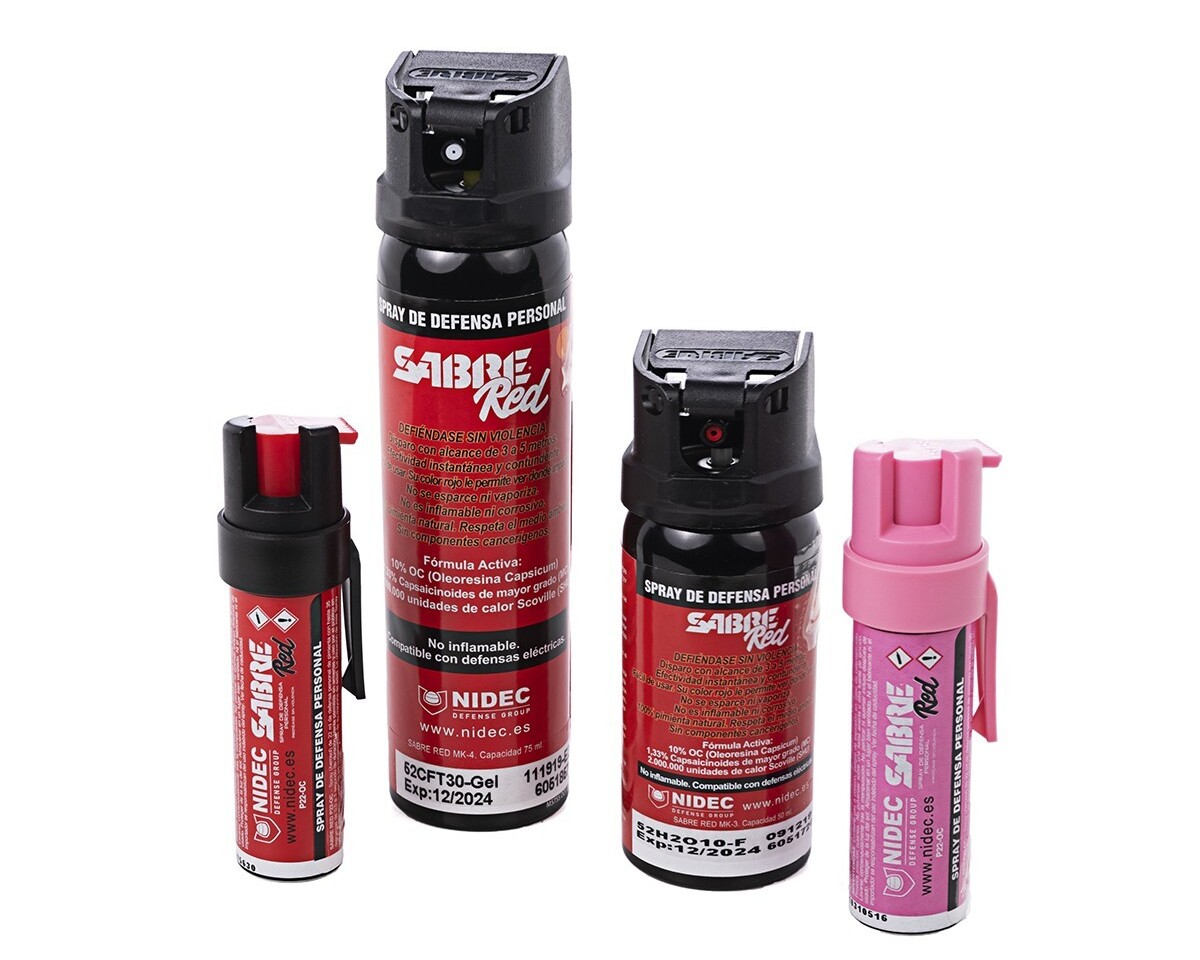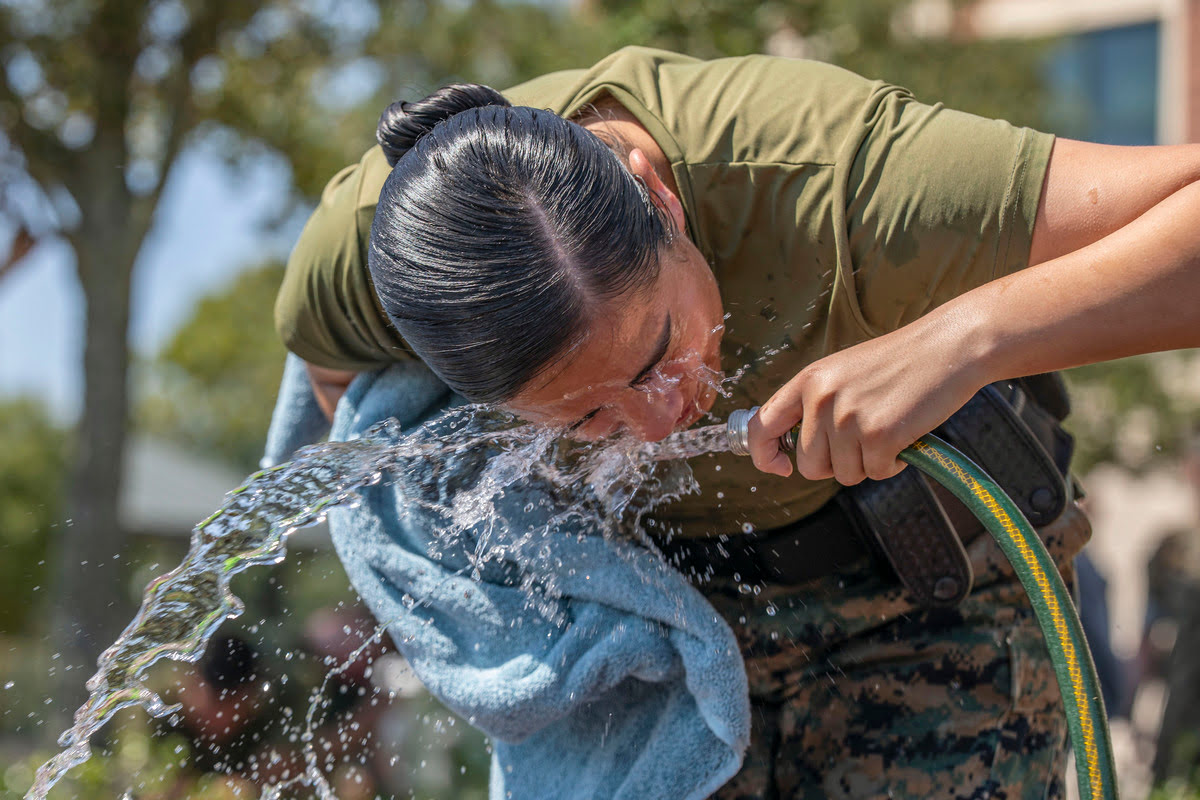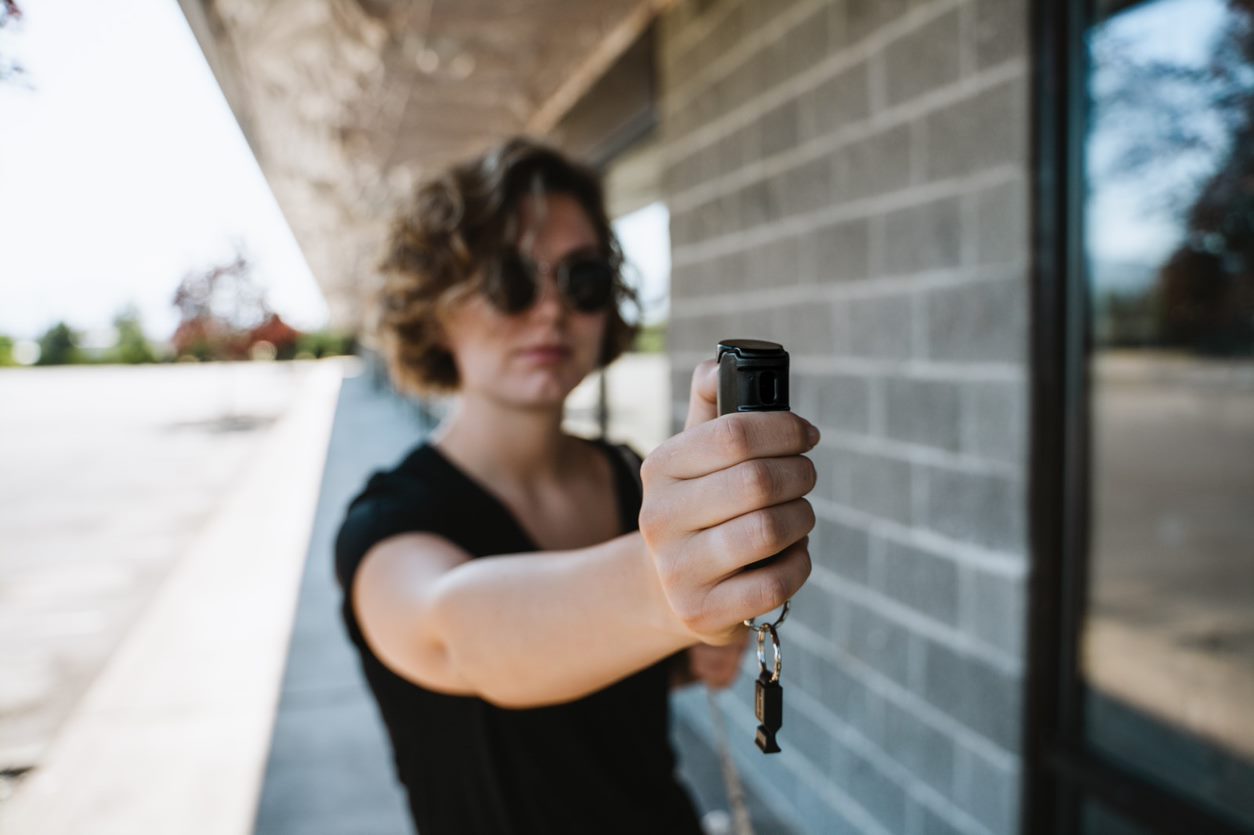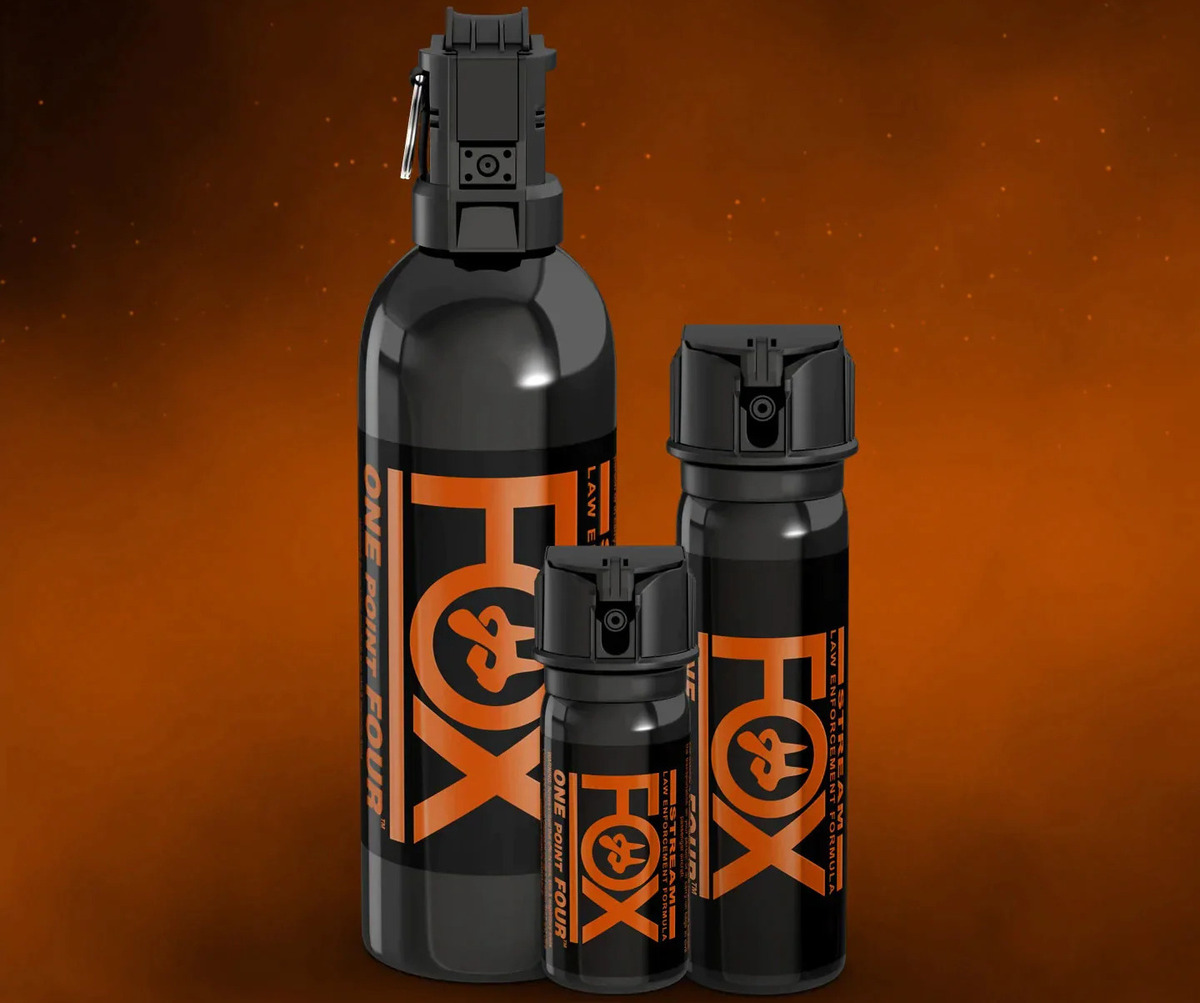Home>Home Security and Surveillance>How To Get Rid Of Pepper Spray In The Air
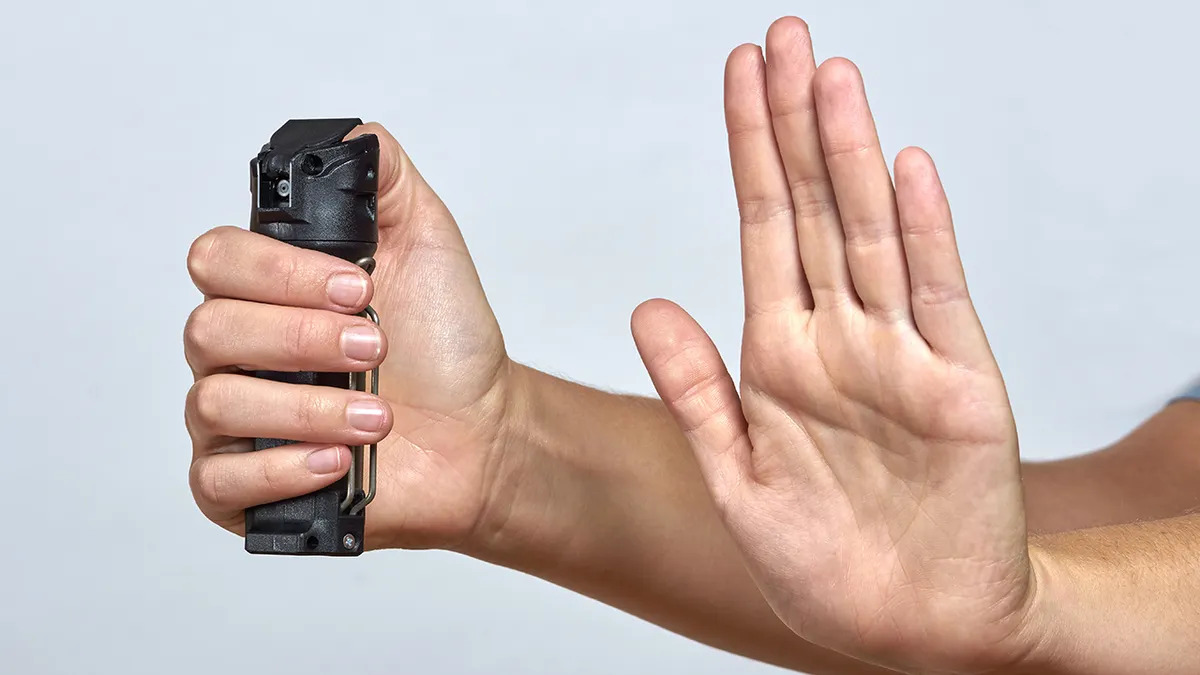

Home Security and Surveillance
How To Get Rid Of Pepper Spray In The Air
Modified: March 7, 2024
Learn effective methods for eliminating pepper spray in the air at your home. Improve your home security and surveillance with our expert tips.
(Many of the links in this article redirect to a specific reviewed product. Your purchase of these products through affiliate links helps to generate commission for Storables.com, at no extra cost. Learn more)
Introduction
Pepper spray, also known as oleoresin capsicum spray, is a popular self-defense tool used by many individuals for protection. It is an aerosol spray containing a derivative of hot peppers, typically capsaicin, which causes extreme irritation and discomfort when it comes into contact with the skin, eyes, and respiratory system.
While pepper spray can be an effective means of self-defense, it can also pose risks if used improperly or in enclosed spaces. When pepper spray is discharged in the air, the fine particles can linger and create a potentially hazardous environment. In this article, we will explore the risks and effects of pepper spray in the air and provide effective methods to get rid of the residue.
It’s important to note that if you ever find yourself exposed to pepper spray in the air, it can cause temporary discomfort, respiratory distress, and vision impairment. Promptly decontaminating the area is crucial to ensure the safety and well-being of everyone present.
Understanding the nature of pepper spray and its effects is essential for effectively mitigating the risks. Let’s delve deeper into the topic.
Key Takeaways:
- Pepper spray in the air can cause respiratory distress, eye and skin irritation, discomfort, and psychological distress. Prompt decontamination and safety measures are crucial for minimizing the effects.
- After exposure to pepper spray, move to fresh air, flush eyes with water, avoid rubbing eyes, and practice good hygiene. Seek medical attention if severe symptoms occur. Stay safe and prepared!
Read more: How To Get Rid Of Pepper Spray Smell
Understanding Pepper Spray
Pepper spray is a non-lethal self-defense tool that is widely used by individuals for protection against potential threats. It contains a chemical irritant called capsaicin, derived from hot peppers, which causes intense burning and discomfort upon contact with the skin, eyes, and respiratory system. The primary purpose of pepper spray is to incapacitate an attacker temporarily, giving the intended target an opportunity to escape or seek help.
The active ingredient in pepper spray, capsaicin, works by triggering pain receptors in the body, leading to temporary inflammation of the mucous membranes, severe eye irritation, and difficulty breathing. The effects are immediate and can last from several minutes to an hour, depending on the concentration of the spray and the individual’s sensitivity.
Pepper spray comes in various forms, including sprays, foam, and gels, each designed to effectively disperse the capsaicin irritant. It is important to note that pepper spray should only be used as a means of self-defense and in situations where it is legal and appropriate.
Pepper spray is an effective tool for personal safety, but it is essential to handle it with caution. It is not recommended for use in crowded areas or enclosed spaces, as the spray can quickly disperse and affect others nearby. In such situations, unintended exposure to pepper spray can cause panic, distress, and potential health risks.
Now that we have a basic understanding of pepper spray, let’s delve into the risks and effects of pepper spray when it is discharged in the air.
Risks and Effects of Pepper Spray in the Air
When pepper spray is discharged in the air, the fine particles containing capsaicin can spread and linger, creating a potentially hazardous environment. The risks and effects of pepper spray in the air can vary depending on several factors, including the concentration of the spray, the size of the enclosed space, and the duration of exposure.
1. Respiratory Distress: Inhalation of pepper spray particles in the air can cause immediate respiratory distress. The capsaicin irritant irritates the respiratory system, leading to coughing, wheezing, and difficulty breathing. It can exacerbate existing respiratory conditions like asthma and may require immediate medical attention.
2. Eye Irritation: Pepper spray in the air can cause intense eye irritation and temporary vision impairment. The spray particles can come into direct contact with the eyes, leading to burning, redness, tearing, and temporary blindness. It is crucial to flush the eyes with clean water immediately to minimize the effects.
3. Skin Irritation: Pepper spray residue in the air can settle on the skin, causing irritation and a burning sensation. This can be particularly uncomfortable if the spray comes into contact with open wounds or sensitive areas. It is advisable to wash the affected areas with mild soap and water to remove the residue.
4. Discomfort: Exposure to pepper spray in the air can cause significant discomfort. The burning sensation, intense pain, and overall feeling of discomfort can last for a considerable amount of time, affecting the individual’s ability to function normally.
5. Psychological Distress: Aside from the physical effects, pepper spray in the air can also induce fear, anxiety, and panic among individuals in the vicinity. The strong and unpleasant odor, combined with the intense physical effects, can create a highly distressing and chaotic environment.
It is crucial to take immediate action to mitigate the risks and effects of pepper spray in the air. In the next section, we will explore effective methods to get rid of pepper spray residue and ensure the safety of everyone present.
To get rid of pepper spray in the air, open windows and doors for ventilation, use fans to circulate air, and consider using an air purifier with a HEPA filter to help remove the particles from the air.
How to Get Rid of Pepper Spray Residue in the Air
If you find yourself in a situation where pepper spray has been discharged in the air and there is residue lingering, it is important to take immediate action to decontaminate the area. Here are some effective methods to get rid of pepper spray residue:
1. Ventilation: Open all windows and doors to allow fresh air to circulate. Use fans or air purifiers to help speed up the process of removing the pepper spray particles from the air. Ventilation is crucial in diluting the concentration of the spray and reducing the effects.
2. Avoid Touching Surfaces: Avoid touching surfaces that may have come into contact with the pepper spray residue. This includes furniture, countertops, doorknobs, and other objects. Capsaicin can stick to surfaces and continue to cause irritation if touched.
3. Clean Surfaces: Use a mild detergent and warm water to clean surfaces that may have been contaminated with pepper spray residue. Wipe down countertops, furniture, walls, and any other affected areas. Be sure to wear gloves while cleaning to protect yourself from potential irritation.
4. Wash Clothing and Fabrics: If clothing or fabrics have been exposed to pepper spray residue, wash them separately using hot water and a strong laundry detergent. Adding vinegar to the wash can help neutralize the capsaicin and remove the odor.
5. Personal Hygiene: If you have been directly exposed to pepper spray in the air, take a shower using warm water and mild soap. Avoid rubbing your eyes, as this may spread the capsaicin irritant. Rinse your mouth thoroughly with water to remove any residue.
6. Seek Medical Attention if Necessary: If you or anyone else experiences severe symptoms or allergic reactions after exposure to pepper spray residue, seek medical attention immediately. Symptoms that warrant medical attention include difficulty breathing, persistent eye irritation, or severe skin irritation.
Remember, the effects of pepper spray residue can vary depending on the concentration and duration of exposure. It is important to assess the situation and take appropriate measures to ensure the safety and well-being of yourself and others present.
In the next section, we will discuss important safety measures to take after pepper spray exposure to minimize any potential long-term effects.
Safety Measures to Take After Pepper Spray Exposure
Exposure to pepper spray can be a distressing experience, but it is important to take immediate safety measures to minimize any potential long-term effects. Here are some essential steps to take after pepper spray exposure:
1. Move to Fresh Air: If you have been exposed to pepper spray in an enclosed space, move to an area with fresh air as soon as possible. This will help reduce the concentration of the spray particles and provide relief from the discomfort.
2. Flush Eyes with Water: If the pepper spray comes into contact with your eyes, immediately flush them with clean water. Tilt your head back, open your eyes, and gently pour water over them for at least 15 minutes. Remove contact lenses if you are wearing them.
3. Do Not Rub Your Eyes: Avoid rubbing or touching your eyes after exposure to pepper spray. This can further spread the capsaicin irritant and intensify the discomfort. Instead, continue flushing your eyes with water until the burning sensation subsides.
4. Allow Tears to Flow: Tears are a natural response to pepper spray exposure. Allow your eyes to tear up as it helps to flush out the capsaicin from your eyes. Blink frequently to encourage tear production.
5. Avoid Contaminating Others: If you have been exposed to pepper spray, take care not to contaminate others with the residue. Stay away from close contact, especially with children, the elderly, and individuals with respiratory conditions.
6. Remove and Wash Contaminated Clothing: If your clothing has come into contact with pepper spray residue, remove and wash them separately. Avoid touching contaminated clothing to prevent spreading the capsaicin irritant further.
7. Do Not Touch Your Face: Avoid touching your face, especially your eyes, nose, and mouth after exposure to pepper spray. The residue can still be present on your hands and may cause further irritation.
8. Practice Good Hygiene: After pepper spray exposure, thoroughly wash your face, hands, and any other exposed areas with mild soap and water. This will help remove any remaining residue from your skin.
9. Rest and Recover: After pepper spray exposure, rest in a well-ventilated area and allow your body to recover. Stay hydrated and monitor your symptoms. If the discomfort persists or worsens, seek medical attention.
It is important to remember that the effects of pepper spray exposure are usually temporary, and most individuals recover fully within a few hours. However, if you experience severe symptoms or an allergic reaction, seek immediate medical attention.
Taking the appropriate safety measures after pepper spray exposure can help minimize any potential long-term effects and promote a speedy recovery. In the next section, we will conclude our discussion on pepper spray in the air.
Read more: How To Store Pepper Spray
Conclusion
Pepper spray is a widely used self-defense tool that can effectively incapacitate an attacker. However, when discharged in the air, pepper spray can pose risks and create a potentially hazardous environment. Understanding the risks and effects of pepper spray in the air is crucial for ensuring the safety and well-being of everyone involved.
In this article, we have explored the nature of pepper spray, its effects, and the importance of handling it with caution. We discussed the risks and effects of pepper spray in the air, including respiratory distress, eye irritation, skin irritation, discomfort, and psychological distress.
To mitigate the risks and effects of pepper spray residue in the air, we have provided effective methods to decontaminate the area. These methods include ventilation, avoiding touching surfaces, cleaning surfaces, washing clothing and fabrics, personal hygiene, and seeking medical attention if necessary.
Additionally, we discussed safety measures to take after pepper spray exposure, such as moving to fresh air, flushing the eyes with water, refraining from rubbing the eyes, allowing tears to flow, avoiding contaminating others, removing and washing contaminated clothing, practicing good hygiene, and rest and recovery.
It is essential to remember that the effects of pepper spray exposure are usually temporary, and most individuals recover fully within a few hours. However, if severe symptoms or allergic reactions occur, it is crucial to seek immediate medical attention.
Pepper spray is a valuable tool for personal safety, but it must be used responsibly and with consideration for those around you. Understanding the proper use and potential risks associated with pepper spray will ensure its effective use and protect the well-being of all parties involved.
In conclusion, when faced with the presence of pepper spray in the air, taking swift action to decontaminate the area and following proper safety measures is of utmost importance. By doing so, you can effectively minimize the risks and effects of pepper spray residue, ensuring the safety and comfort of yourself and others. Stay prepared, stay safe!
Frequently Asked Questions about How To Get Rid Of Pepper Spray In The Air
Was this page helpful?
At Storables.com, we guarantee accurate and reliable information. Our content, validated by Expert Board Contributors, is crafted following stringent Editorial Policies. We're committed to providing you with well-researched, expert-backed insights for all your informational needs.
